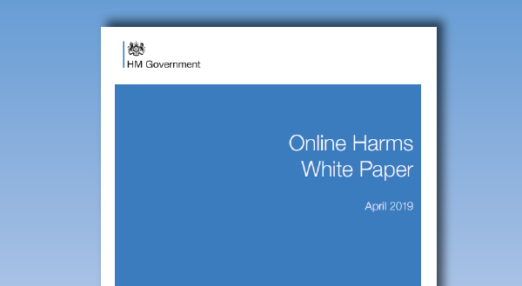UK
Filter by...
-

Data retention: “National security” is not a blank cheque
On 15 January, Advocate General (AG) Campos Sánchez-Bordona of the Court of Justice of the European Union (CJEU) delivered his opinions on four cases regarding data retention regimes in France, Belgium and the UK, in the context of these Members States’ surveillance programmes.
Read more
-

Indiscriminate data retention considered disproportionate, once again
EDRi’s initial reaction on the press release of the AG Opinion on data retention Today’s Court of Justice of the European Union (CJEU) Advocate General’s Opinions continue the firmly established case-law of the CJEU considering mass collection of individuals communications data incompatible with EU law. The Advocate General reaffirms that blanket retention of telecommunication data […]
Read more
-

Content regulation – what’s the (online) harm?
In recent years, the national legislators in EU Member States have been pushing for new laws to combat negative societal phenomena such as hateful or terrorist content online. These regulatory efforts have one common denominator: they shift the focus from conditional intermediary liability to holding intermediaries directly responsible for the dissemination of illegal content on their platforms.
Read more
-

UK: Online Harms Strategy must “design in” fundamental rights
After months of waiting and speculation, the United Kingdom government Department for Digital, Culture, Media and Sport (DCMS) has finally published its White Paper on Online Harms – now appearing as a joint publication with the Home Office. The expected duty of care proposal is present, but substantive detail on what this actually means remains […]
Read more
-

New UK counter-terrorism law limits online freedoms
The Counter-Terrorism and Border Security Act 2019 became law in the United Kingdom (UK) in February, after passing through UK parliament with less debate than many had hoped, while Brexit dominated the political agenda. The new law is problematic in many ways, including the way in which it limits freedom of expression and access to […]
Read more
-

ECtHR gives a half-hearted victory against UK mass surveillance
On 13 September 2018, the European Court of Human Rights (ECtHR) delivered its ruling on the case brought by EDRi members Privacy International, Open Rights Group and other NGOs against the United Kingdom. The Court found several violations of the European Convention on Human Rights in three UK mass surveillance programmes. The Court’s judgment is […]
Read more
-

UK counter-terrorism law would restrict freedom of expression
Freedom of expression campaigners, human rights groups and legal experts are raising concerns that proposed new counter-terrorism legislation in the United Kingdom would restrict freedom of expression and limit access to information online.
Read more
-

LEAK: British EU Commissioner: ID check & prior approval for online posts
In a letter to Commissioner Mariya Gabriel obtained by EDRi1, the British European Commissioner, Sir Julian King, makes it clear that, not alone does he no longer find it acceptable that people should be able to communicate online without prior approval, he also objects to people communicating without being identified. Commissioner King is pushing the […]
Read more
-

Fighting for migrants’ data protection rights in the UK
Since 2014, the United Kingdon (UK) government has steadily rolled out policies to make the country a “hostile environment” for migrants, in the words of Prime Minister Theresa May.
Read more
-

Control of sorts over personal data for UK healthcare patients
NHS Digital, the provider of data and IT systems for the National Health Service (NHS) in the United Kingdom, has announced plans to roll out a new system by March 2018 as part of the national data opt-out. This is intended to allow patients to choose whether or not their personal identifiable data is used […]
Read more
-

The UK discusses data retention again
Rather bizarrely, the UK appears to be taking a more diligent approach to the application of EU law on data retention than the European Commission. While the Commission sits on its hands as individual Member States adopt increasingly outlandish and illegal data retention proposals – such as a new Italian law that imposes data retention […]
Read more
-

Internet clampdown – convenient distraction from political turmoil?
There was unforeseen result in the United Kingdom general election. The Conservative Party was expected to increase their majority in government. However, it failed to achieve a majority and was forced to seek an alliance with the controversial Democratic Unionist Party (DUP) in order to form a government.
Read more
